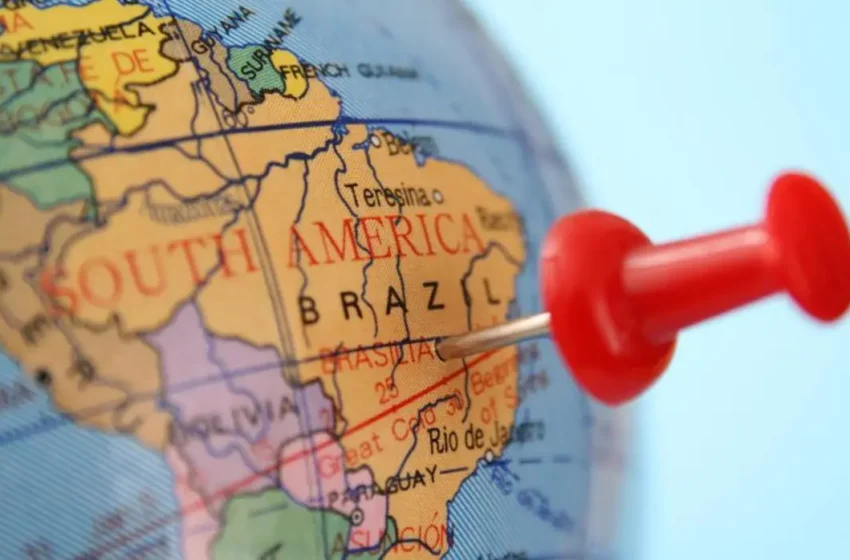Core Scientific to Sell 2,500 Bitcoin as Company Pivots Toward
Brazil Blocks World ID Project Over Biometric Data Concerns
(Originally posted on : Crypto News – iGaming.org )
The World ID project’s sponsor, Tools for Humanity (TFH), has been the target of action by Brazil’s National Data Protection Authority (ANPD). Citing worries over the collecting of biometric data in return for cryptocurrencies or financial incentives, the watchdog has ordered the suspension of services in Brazil, beginning January 25.
Crypto Payments Raise Consent Concerns
The ANPD launched an investigation in November 2023, shortly after the World ID project debuted in Brazil. It determined that offering cryptocurrency as compensation could undermine the validity of consent for collecting sensitive biometric data. According to Brazilian law, individuals must freely and explicitly consent to the use of their personal data, especially when it involves highly sensitive information like biometrics.
The ANPD emphasized that financial rewards could influence individuals’ decisions, particularly those in vulnerable situations. The agency also raised concerns about the irreversible nature of biometric data collection and the inability to delete such data once submitted.
World Network, formerly known as Worldcoin, was co-founded in 2019 by OpenAI CEO Sam Altman. The project relies on iris biometrics developed by Tools for Humanity, a company based in San Francisco and Berlin. The initiative aims to create a global digital identity and financial system by scanning individuals’ irises using a high-tech device called “the orb.”
While the project has ambitious goals, critics have questioned its methods and the potential risks associated with biometric data storage. The ANPD’s decision underscores these concerns, particularly in the context of Brazil’s stringent data protection laws.
New players only. Exclusive Welcome Bonus of up to $2,500
The ANPD’s ruling highlights the challenges of balancing innovation with privacy rights. With biometric data collection becoming more common, ensuring transparency and protecting individuals’ rights remains critical. As the global conversation around data protection intensifies, the World ID project faces increased scrutiny over its practices.







 Bitcoin
Bitcoin  Ethereum
Ethereum  Tether
Tether  XRP
XRP  USDC
USDC  Solana
Solana  TRON
TRON  Figure Heloc
Figure Heloc  Lido Staked Ether
Lido Staked Ether  Dogecoin
Dogecoin  WhiteBIT Coin
WhiteBIT Coin  USDS
USDS  Cardano
Cardano  Bitcoin Cash
Bitcoin Cash  LEO Token
LEO Token  Wrapped stETH
Wrapped stETH  Hyperliquid
Hyperliquid  Monero
Monero  Wrapped Bitcoin
Wrapped Bitcoin  Chainlink
Chainlink  Binance Bridged USDT (BNB Smart Chain)
Binance Bridged USDT (BNB Smart Chain)  Ethena USDe
Ethena USDe  Canton
Canton  Stellar
Stellar  USD1
USD1  Wrapped eETH
Wrapped eETH  Rain
Rain  Dai
Dai  sUSDS
sUSDS  Hedera
Hedera  Litecoin
Litecoin  PayPal USD
PayPal USD  Coinbase Wrapped BTC
Coinbase Wrapped BTC  Avalanche
Avalanche  Zcash
Zcash  Sui
Sui  WETH
WETH  Shiba Inu
Shiba Inu  Toncoin
Toncoin  Cronos
Cronos  USDT0
USDT0  Tether Gold
Tether Gold  World Liberty Financial
World Liberty Financial  Polkadot
Polkadot  PAX Gold
PAX Gold  Uniswap
Uniswap  MemeCore
MemeCore  Mantle
Mantle  Ethena Staked USDe
Ethena Staked USDe  BlackRock USD Institutional Digital Liquidity Fund
BlackRock USD Institutional Digital Liquidity Fund  Circle USYC
Circle USYC  Global Dollar
Global Dollar  Bittensor
Bittensor  Falcon USD
Falcon USD  NEAR Protocol
NEAR Protocol  Aster
Aster  Aave
Aave  Pi Network
Pi Network  Sky
Sky  OKB
OKB  syrupUSDC
syrupUSDC  Ripple USD
Ripple USD  Bitget Token
Bitget Token  HTX DAO
HTX DAO  Pepe
Pepe  Internet Computer
Internet Computer  BFUSD
BFUSD  Ethereum Classic
Ethereum Classic  Ondo
Ondo  Superstate Short Duration U.S. Government Securities Fund (USTB)
Superstate Short Duration U.S. Government Securities Fund (USTB)  Gate
Gate  Pump.fun
Pump.fun  Worldcoin
Worldcoin  POL (ex-MATIC)
POL (ex-MATIC)  KuCoin
KuCoin  Jupiter Perpetuals Liquidity Provider Token
Jupiter Perpetuals Liquidity Provider Token  Midnight
Midnight  Ondo US Dollar Yield
Ondo US Dollar Yield  Ethena
Ethena  Cosmos Hub
Cosmos Hub  Jito Staked SOL
Jito Staked SOL  NEXO
NEXO  USDtb
USDtb  Binance-Peg WETH
Binance-Peg WETH  Spiko EU T-Bills Money Market Fund
Spiko EU T-Bills Money Market Fund  Rocket Pool ETH
Rocket Pool ETH  Aptos
Aptos  Binance Bridged USDC (BNB Smart Chain)
Binance Bridged USDC (BNB Smart Chain)  Official Trump
Official Trump  Algorand
Algorand  Wrapped BNB
Wrapped BNB  Filecoin
Filecoin  Function FBTC
Function FBTC